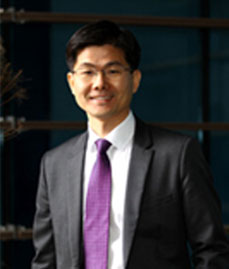Southeast Asian frontiers have revived scholars’ attention with a series of seminal works by scholars including Willem van Schendel and James Scott. Indeed, Southeast Asianists inherited a great tradition on the study of frontier societies from prominent scholars such as Edmund Leach. For a long time, frontier regions have provided scholars with a wealth of rich material concerning the formation of ethnic identities, the dynamics of inter-ethnic relations, the forces of nation-building which transformed frontier areas into national territories, and transnational/regional connections across frontier areas. Truly, Southeast Asian frontiers have enriched the scholarship of Southeast Asian studies and even contributed to the theoretical development of existing disciplines including anthropology, history and political science. Building upon in this revived research theme on Southeast Asian frontiers, this Research Cluster seeks to mobilize collective understanding of the social formations of frontier societies. The Cluster will deal with ecological, historical, social-cultural, and political conditions of particular frontier societies that have shaped current social structures in a comparative as well as holistic approach. Above all, the Cluster focuses on interactions between social actors including ethnic groups, state agencies, NGOs, etc. Main concerns include how inter-ethnic relations formulate social systems, how the state engages in projecting frontier areas into national spaces, and how the participation of international agencies in the age of globalization turn frontier societies into dynamic forms. The Research Cluster covers various parts of Southeast Asian frontiers, including borderlands, mountainous areas, and maritime frontiers. The chosen frontiers will reflect the interests of cluster participants. However, the participants will be guided to deal with their cases under a shared research design framework which will be fine-tuned in the process.

Name |
Research Areas |
Affiliation |
| LEE Sang Kook | Thailand-Myanmar | Institute for East Asian Studies, Sogang Univ. |
| CHANG Wen-chin | Myanmar-China | Academia Sinica |
| Sara Turner | Vietnam-China | Magill Univ. |
| Alexander Horstmann | Thailand-Malaysia/Thailand-Myanmar | Mahidol Univ. |
| SONG Seung-Won | Indonesian frontier | Hankuk University of Foreign Studies |
| HONG Seok-Joon | Malaysian frontier | Mokpo Univ. |
| Mathieu Guerin | Cambodia-Vietnam | Univ. of Caen Basse-Normandie |
| Antonella DIANA | Laos-China | Chinese Univ. of Hong Kong |
| Luz Sevidal CASTRO | Mindanao, the Philippines | Mindanao State Univ. |
| Michael Eilenberg | Indonesian Borneo | Aarhus Univ. |
| Mandy Sadan | Myanmar-China | SOAS, London Univ. |
| Juan Zhang | Vietnam-China | National Univ. of Singapore |
| Sarinda Singh | Laos-Cambodia | Univ. of Queensland |
– Cluster International Conference
Social Formations of Southeast Asian Frontier Societies
October 25-27, 2012, Sogang University, Seoul Korea
– Lecture
A Social Formation of the Mongolian Steppe
YU Wonsoo (Institute of Humanities, Seoul National University)
April 26, 2012, Sogang University
– Cluster Inauguration Seminar
March 26, 2012, Sogang University
LEE Sang Kook: Southeast Asian Mountains and Southeast Asian Studies: Critical Reviews on Edmund Leach and James Scott
HONG Seok-Joon: Malaysian Port Cities as Frontiers: The History and Cultures of Port Cities in Connection with the Ocean and the Inland
Song Seung-Won: Traditional Elites’ Adoption of Political Ideologies and the Restructuring of a Local Society in Native-Dutch Collaboration Areas: Focusing on the Elites of Buton Island, Indonesia during the Revolution
